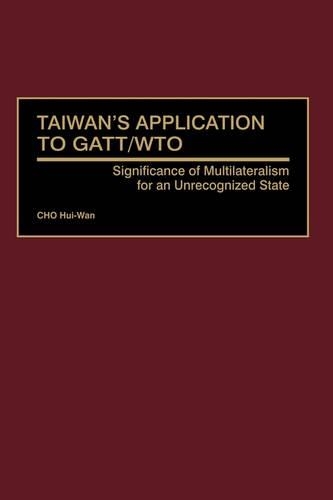
Taiwan's Application to GATT/WTO: Significance of Multilateralism for an Unrecognized State
(Hardback)
Publishing Details
Taiwan's Application to GATT/WTO: Significance of Multilateralism for an Unrecognized State
By (Author) CHO Hui-Wan
Bloomsbury Publishing PLC
Praeger Publishers Inc
30th November 2001
United States
Classifications
Tertiary Education
Non Fiction
Public international law: economic and trade
Political economy
Economic history
Asian history
382.92
Physical Properties
Hardback
240
Width 156mm, Height 235mm
510g
Description
Revealing a powerful economic motive behind Taiwan's 1990 application for GATT membership, Cho questions those who interpreted it solely as a political move designed to break that island nation's diplomatic isolation. Flourishing economically since the 1950s despite non-GATT membership, matters changed for Taiwan in the 1980s when it became both "big and small." As a big trader, its dual trade regime was no longer tolerated, while as a small economy with little political clout, Taiwan was pushed to liberalize its trade practices by bilateral pressures. Taiwan believes that the most-favored nation principle and diffuse reciprocity embedded in GATT/WTO's multilateralism will sheild Taiwan from the pernicious effects of bilateral asymmetry while simultaneously providing it with "more international living space."
Author Bio
CHO Hui-Wan is Assistant Professor, Graduate Institute of International Politics, National Chung Hsing University, Taichung, Taiwan./e
